Provide expectations for using flexible seating in the classroom with printable anchor charts.
What is Flexible Seating?
Flexible seating is a modern classroom design approach that allows students to choose their preferred seating instead of the traditional rows of desks facing the teacher at the front. This approach promotes comfort and engagement like adults do in their workplaces.
Flexible seating is also known as classroom ‘un-seating’. It is a teaching approach that aims to create a learning environment that better reflects the dynamic and interconnected world we live in today. In this environment, students must master essential skills such as problem-solving, creativity, collaboration, and adaptability. The ultimate goal is to prepare students for success in the rapidly changing world.
Setting Rules and Expectations for Flexible Seating
Flexible seating can be an amazing addition to your classroom environment, but it must come with high expectations and consistent practice in order to be successful. Students must know what is expected of them, where they can and cannot sit, what to do if there is a problem, and more!
That’s why we’ve created this fun little set of half-size flexible seating rule posters. These six posters are fully editable inside Google Slides and can be modified to suit your classroom rules and expectations.
Download and Print Your Flex Seating Rule Posters
This resource is available in the following printable and editable formats. Click the dropdown arrow on the download button to select the file you prefer.
- Full-Color PDF (non-editable)
- BW PDF (non-editable)
- Full-Color Google Slides (Editable)
- BW Google Slides (Editable)
Even More Back-to-School Expectation Resources
Keep the momentum of inspiration going by checking out our even more of our beginning-of-year resources. You might find just what you need to finish your classroom setup early!
Set clear expectations with a visual classroom expectations poster for the classroom. Strengthen classroom management and reduce classroom interruptions with miniature hand signal posters and bookmarks. Help your kindergarten students learn to use materials appropriately with printable classroom supply procedure worksheets.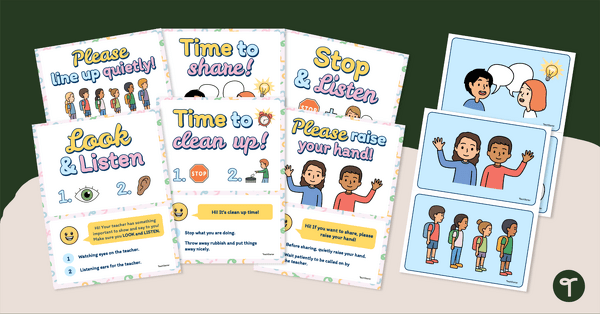
teaching resource
Classroom Expectations - Behavioral Visual Support Posters
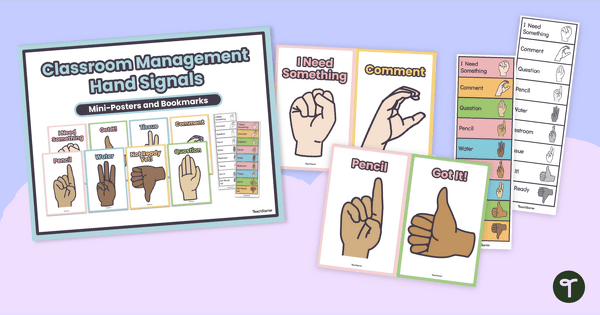
teaching resource
Classroom Hand Signal Anchor Charts
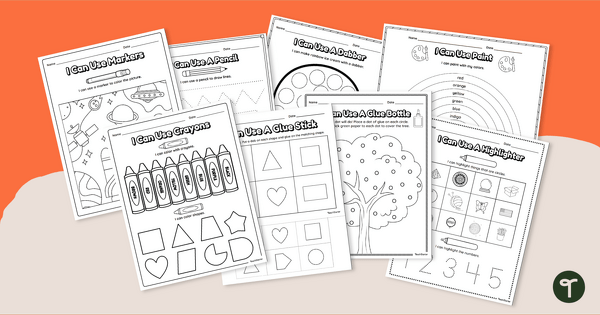
teaching resource
Using School Supplies - Kindergarten Worksheets
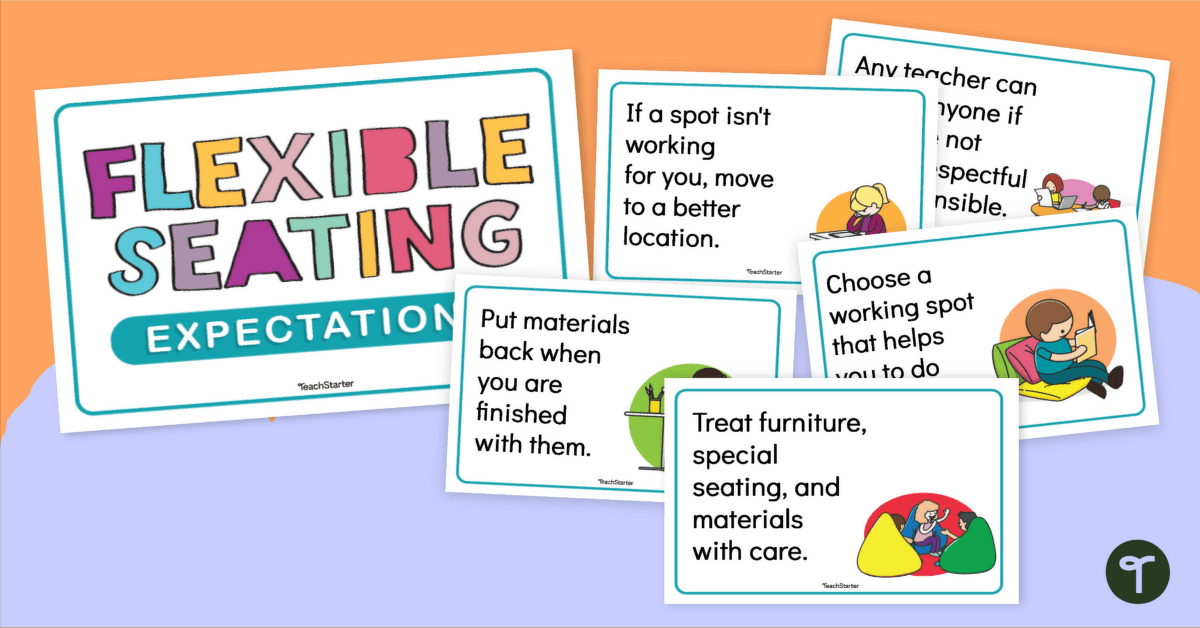
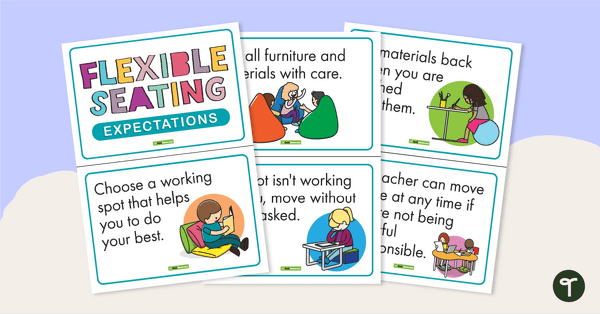

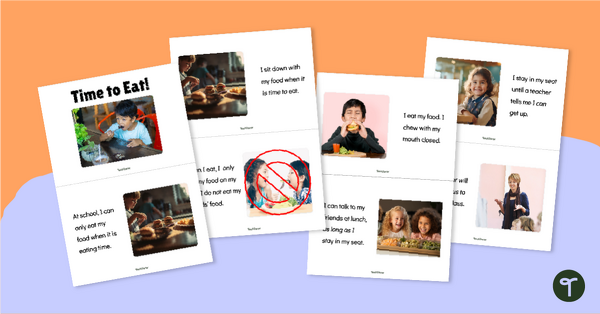
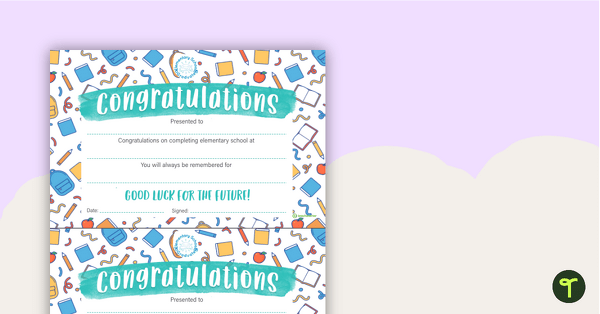
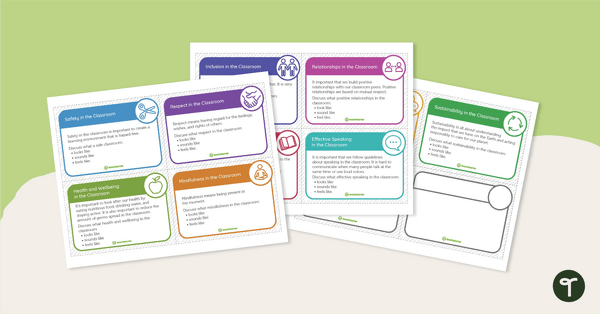
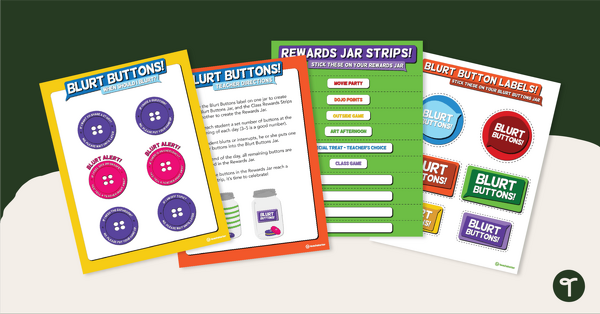
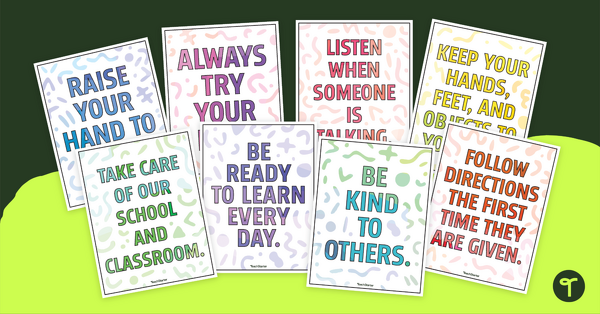
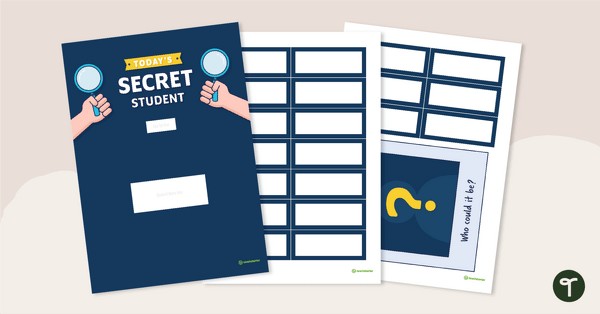

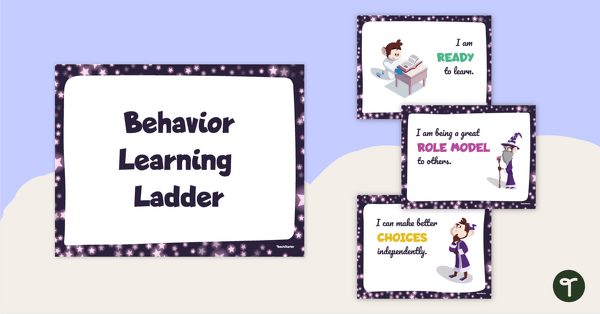

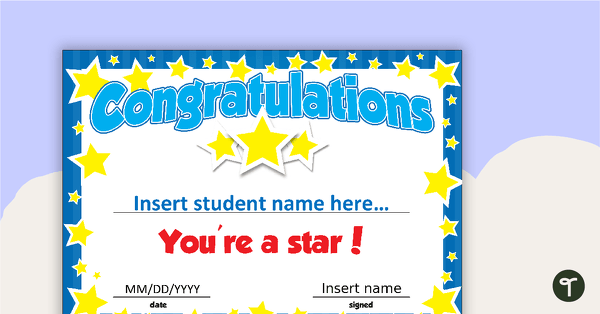
0 Comments
Write a review to help other teachers and parents like yourself. If you'd like to request a change to this resource, or report an error, select the corresponding tab above.